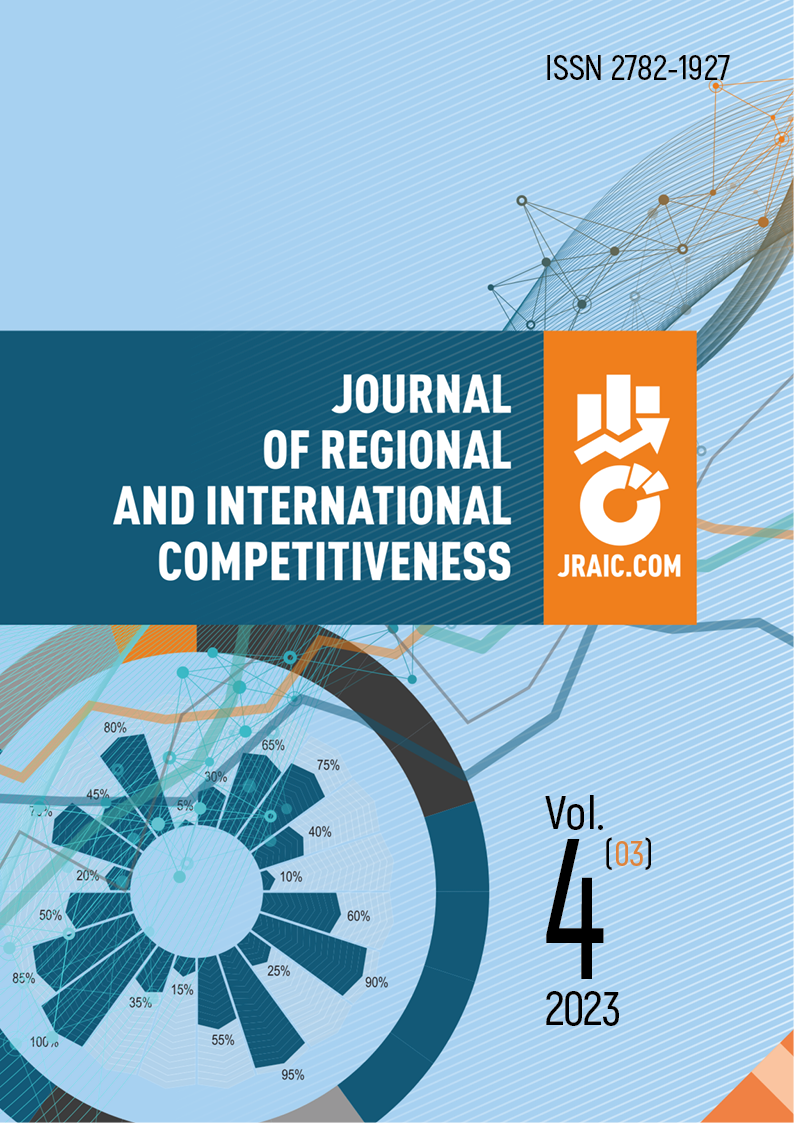Rome, Italy
from 01.01.2015 until now
Yaroslavl, Yaroslavl, Russian Federation
The article analyzes the problem of gaining technological sovereignty in terms of formational and civilizational approaches. The paper highlights the stages of Russia’s acquisition of technological sovereignty: from economic - through scientific and technological - to technological one. It initially interpreted as import substitution (less often - as proactive import substitution), later - as the creation of its own competitive technologies. According to this stage, the purpose of forming technological sovereignty acquired the status of a priority for the domestic national economy. The author gives definition of technological sovereignty as an economic category. Namely, the expanded reproduction of technological self-sufficiency based on the design, implementation, and development of key technologies in an open-closed economic system. On the one hand, the author highlights the necessary conditions for the competitiveness of the «technological sovereignty of Russia» project, and refers to them those that ensure the simple reproduction of Russia’s technological self-sufficiency, or its survival in a hybrid war. On the other hand, author substantiates the sufficient conditions for the competitiveness of the project named above. Moreover, those should ensure the expanded reproduction of Russia’s technological self-sufficiency, or its development in a hybrid war. As a result, author comes to the conclusion that despite the importance of creating the necessary and sufficient conditions, the implementation of the «technological sovereignty of Russia» project does not guarantee the successful innovative development of industries without appropriate institutional and economic conditions for their modernization.
COMPETITIVENESS, TECHNOLOGICAL SOVEREIGNTY, INDUSTRIAL POLICY, CRITICAL TECHNOLOGIES, CORE TECHNOLOGIES, SUPPORTING INDUSTRIES TECHNOLOGIES, AUTARKICAL MODEL, OPEN-CLOSED ECONOMIC SYSTEM
1. Marx, K. (1961). Criticism of the Gothic program. (Vol. 19). Moscow: Politizdat (in Russian).
2. Lenin, V.I. (1969). Karl Marx (A brief biographical essay on Marxism). (Vol. 26). Moscow: Politizdat (in Russian).
3. Toynbee, A. J. (2009). History research. The emergence, growth and disintegration of civilizations. Moscow: AST (in Russian).
4. Jaspers, K. (2017). Introduction to philosophy. Philosophical autobiography. Moscow: Canon+ (in Russian).
5. Sorokin, P. (2000). Social and cultural dynamics: A Study of changes in Large systems of art, truth, ethics, law and public relations. S.-Peterburg: Izdatel’stvo russkih hristian gumanitarnogo in-ta (in Russian).
6. Rostow, U. U. (1961). Stages of economic growth. New York: Praeger, cop. (in Russian).
7. Toffler, E. (2010). The third wave. Moscow: AST (in Russian).
8. Danilevsky, N. Ya. (1895). Russia and Europe. A look at the cultural and political relations of the Slavic world to the Germanic-Romance. Sankt-Peterburg: Izdatel’stvo brat’ev Panteleevyh (in Russian).
9. Andreeva, O. V. (2014). Technological and financial sovereignty of the Russian Federation: problems, contradictions, security mechanism. Journal of Economic Regulation, 5(4), 126–135 (in Russian).
10. Afanasyev, A. A. (2023). Technological sovereignty as a scientific category in the system of modern knowledge. Ekonomika, predprinimatel’stvo i pravo, 12(9), 2377–2394 (in Russian).
11. Efimov, A. V., & Tikhonovskova, S. A. (2022). Technological sovereignty of Russia in the context of strategic goals for the development of the regional economy. Drukerovskij vestnik, 48(4), 165–172 (in Russian).
12. Konstantinov, I. B., & Konstantinova, E. P. (2022). Technological sovereignty as a strategy for the future development of the Russian economy. Vestnik Povolzhskogo instituta upravleniya, 22(5), 12–22 (in Russian).
13. Neklyudov, A., & Livshits, I. (2016). Import substitution or technological sovereignty? Connect, 9 (in Russian).
14. Ricardo, D. (2008). The beginning of political economy and taxation. Selected. Moscow: Eksmo (in Russian).
15. Marx, K. (1974). Chapter six. The results of the direct production process: trans. from German. (Vol. 49). Moscow: Politizdat (in Russian).
16. Tsagolova, N. A. (Ed.). (1973). The course of political economy. (Vol. 1). Moscow: Economics (in Russian).
17. Medvedev, V. A., Abalkin, L. I., & Ozherelyev, O. I. (1988). Political Economy. Moscow: Politizdat (in Russian).
18. Prikhodko, I. I. (2022). Theoretical aspects of the concept of technological sovereignty. Uchenye zapiski Krymskogo federal’nogo universiteta imeni V. I. Vernadskogo, Ekonomika i menedzhment, 8(74), 4, 88– 96 (in Russian).
19. Lyuboveckij, A. (2023, June 14). Denis Manturov: We Will Ensure Our Technological Sovereignty Over Critical Technologies. Rossiyskaya Gazeta, (6) (in Russian).
20. Glazyev, S. Yu. (2019). Management of economic development. Moscow: MSU (in Russian).
21. Goryacheva, V. V., & Myzrova, O. A. (2023). The role and place of technological sovereignty in ensuring the sustainability of the Russian economy. Izvestiya Saratovskogo yniversiteta. Novaya seriya. Seriya: Ekonomika. Upravlenie. Pravo, 23(2), 134–145 (in Russian).
22. Afanasyev, A. A. (2022). Technological sovereignty: to the question of essence. Kreativnaya ekonomika, 16(10), 3691–3708 (in Russian).
23. Kokoshin, A. A. (2015). National interests, real sovereignty and national security. Voprosy filosofii, 10, 5–19 (in Russian).
24. Yankovskaya, E. S. (2022). Technological sovereignty of Russia: the concept, essence, strategy and ways of its implementation. Uchenyezapiski Sankt-Peterburgskogo imeni V. B. Bobkova filiala Rossijskoj tamozhennoj akademii, 4(84), 76–81 (in Russian).
25. Egerev, S. V. (2022). The temptation of autarky. Upravlenie naukoj: teoriya i praktika, 4(2), 68–76 (in Russian).
26. Faltsman, V. K. (2018). Technological sovereignty of Russia. Statisticheskie izmereniya. Sovremennaya Evropa, 3(82), 83–91 (in Russian).
27. Gross domestic spending on R&D. (2022). Organisation for Economic Co-operation and Development. Retrieved from https://data.oecd.org/rd/gross-domestic-spending-on-r-d.htm (accessed 01.02.2023).
28. Vlasova, V. V., Gokhberg, L. M., & Ditkovsky, K. B. (2023). Science. Technologies. Innovations: 2023. Moscow: HSE (in Russian).
29. Katasonov, V. Yu. (2023). Statistics of scientific and technical backwardness of Russia. Russian Economic Society named after S.F. Sharapova. Retrieved from https://reosh.ru/valentin-katasonov-statistika-nauchno-texnicheskogo-otstavaniya-rossii.html?ysclid=lolpqsy 015253850516 (accessed 01.02.2023) (in Russian).
30. Dunenkova, E. N., & Onishchenko, S. I. (2023). Technological sovereignty of Russia: innovative development of industries. Innovacii i investicii, 4, 15–18 (in Russian).




















